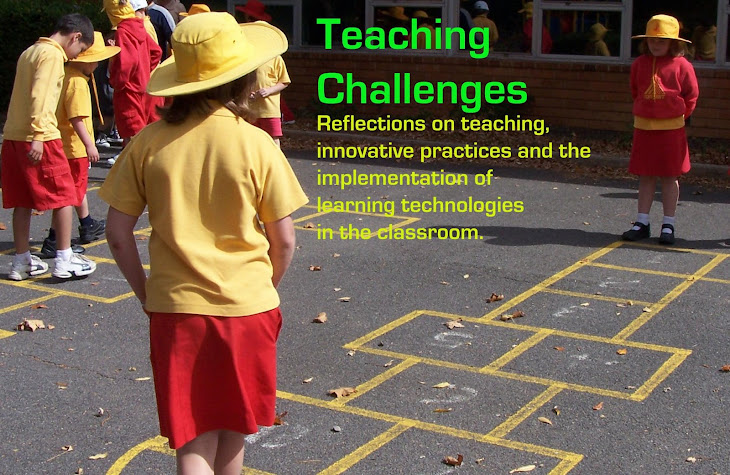Overall
My overall evaluation of the Experienced Teacher Accreditation - Action Research Pathway, was that it was a very worthwhile use of time and excellent professional learning. I went into it hoping to make good use of the year and hopefully learn along the way. I knew I needed to do the accreditation, but I didn't want to spend the year just trying to tick things off a list of descriptors. The action research pathway was the answer to this.
The Challenges
There are many elements to juggle within the Action Research Project, and it takes some time to get your head around it all. You still need to be ticking off descriptors and collecting evidence throughout the year AND it should be related to the action research project. I found myself second guessing myself a lot throughout the process and not really sure if I was on track. There were no success criteria or word counts or any other guide for what was required for parts like the Description, Analysis and Evaluation. I'm hoping I got there in the end, but won't be surprised if I need to revisit some things in order to get final approval.
Going in I didn't really know much about action research, and I still feel a little in the dark about that. I ended up finding some readings through my university which helped to clarify a few things, particularly as I came to the analysis stage. I struggled to understand whether I needed "hard" proof of my findings, or whether it was about interpretation. I feel I ended up with a little of each just to be on the safe side.
My Project
For my project I investigated the impact of Growth Mindset on Year 1 students' academic achievement through formative assessment and feedback. I felt that Growth Mindset coaching would make students more receptive to feedback, resulting in improved outcomes. I used Class Dojo videos as the stimulus for discussion in mini lessons and then followed through with Growth Mindset feedback and statements. I also used parts from "The Growth Mindset Coach" by Annie Brock and Heather Hundley. Following on from this I worked with students on giving and receiving feedback.
Results of my Action Research
I used a Mindset questionnaire at the beginning and end of the project to determine how students' thinking changed throughout. It also showed me students with a tendency toward a fixed mindset, making it easier for me to target them with individualised coaching when they were struggling with a difficult task or unwilling to attempt something challenging. The results from this questionnaire showed that students had shifted toward a growth mindset during the project.
I also looked at students' academic progress during this period and found that their reading levels improved by a greater rate than my class during the same period last year. At the end of the year I will have some comparison data for spelling as well.
Beyond the quantitative results, there were also the experiences of the students in the class. I selected some case studies and found that there were significant results amongst students who began in the lower quarter of the class. For example, one made significant progress throughout the project and was bumped up to a higher level for spelling, reading and maths, and he rose to the challenge each time. Another made HUGE gains with his reading, going from a PM level 10 to 27 in just six months. These results suggested to me that while all students benefited and improved, those who were lower performing and also had elements of fixed mindset had the most to benefit from the program.
I had thought that it would be through feedback that improvement would be made, but now I think that the change in mindset actually impacted in many ways:
- students were interested in feedback and could see that it was to help them learn
- students wanted challenging tasks and were happy to put in the effort to learn
- students realised that they could actually do things if they just stuck at it
- students felt free to engage and contribute ideas, knowing that they wouldn't be shunned if they made a mistake
- as their teacher I didn't give up when they persisted with bad habits, but rather kept working at it with them, knowing that they can change - even if it takes longer.
- I got better at giving immediate feedback when I could see there was a problem, or making a note to return to it soon.
- I enlisted the help of parents to work on some things when the class had moved on to something else
- I made an effort to cater for all students - providing a challenging task for all - even when this made things less streamlined and comfortable.
Going Forward
Having been down this path, I'm afraid I can't go back. I'm hooked! From here on in, I know the Growth Mindset will be a part of who I am and how I teach. I will also continue to work on improved formative assessment and feedback to complement the Growth Mindset coaching and ensure that all students are pushing toward their potential.






No comments:
Post a Comment
I'd love to hear your thoughts and questions. Please don't be shy...
:)